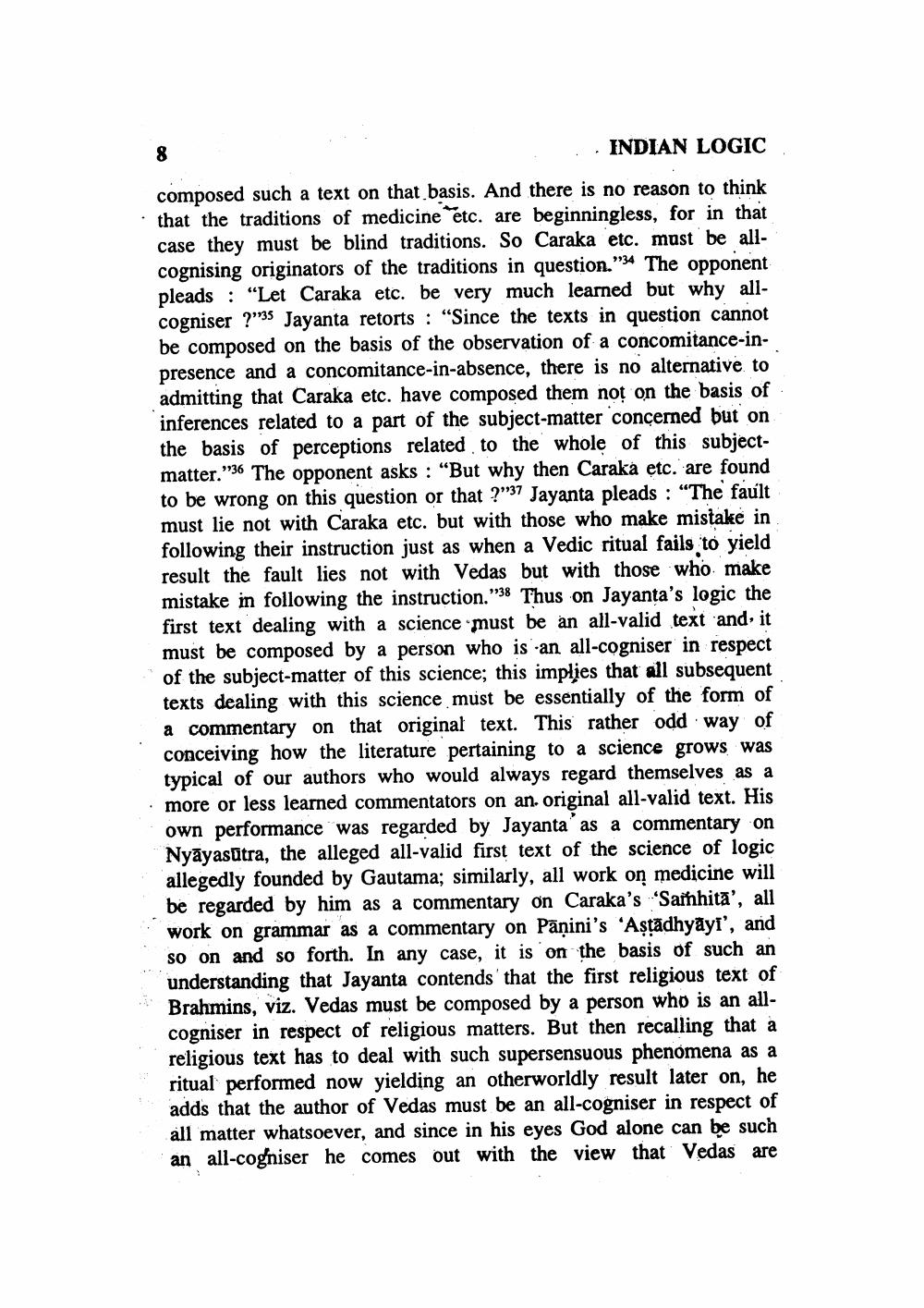________________
· INDIAN LOGIC
composed such a text on that basis. And there is no reason to think that the traditions of medicine etc. are beginningless, for in that case they must be blind traditions. So Caraka etc. must be allcognising originators of the traditions in question."34 The opponent pleads : "Let Caraka etc. be very much learned but why allcogniser ?!35 Jayanta retorts : "Since the texts in question cannot be composed on the basis of the observation of a concomitance-inpresence and a concomitance-in-absence, there is no alternative to admitting that Caraka etc. have composed them not on the basis of inferences related to a part of the subject matter concerned but on the basis of perceptions related to the whole of this subjectmatter."36 The opponent asks : "But why then Caraka etc. are found to be wrong on this question or that ?!37 Jayanta pleads : “The fault must lie not with Caraka etc. but with those who make mistake in following their instruction just as when a Vedic ritual fails to yield result the fault lies not with Vedas but with those who make mistake in following the instruction."38 Thus on Jayanta's logic the first text dealing with a science must be an all-valid text and it must be composed by a person who is an all-cogniser in respect of the subject matter of this science; this implies that all subsequent texts dealing with this science must be essentially of the form of a commentary on that original text. This rather odd way of conceiving how the literature pertaining to a science grows was typical of our authors who would always regard themselves as a more or less learned commentators on an original all-valid text. His own performance was regarded by Jayanta' as a commentary on Nyāyasútra, the alleged all-valid first text of the science of logic allegedly founded by Gautama; similarly, all work on medicine will be regarded by him as a commentary on Caraka's 'Saihita', all work on grammar as a commentary on Pāṇini's 'Aştädhyāyi', and so on and so forth. In any case, it is on the basis of such an understanding that Jayanta contends that the first religious text of Brahmins, viz. Vedas must be composed by a person who is an allcogniser in respect of religious matters. But then recalling that a religious text has to deal with such supersensuous phenomena as a ritual performed now yielding an otherworldly result later on, he adds that the author of Vedas must be an all-cogniser in respect of all matter whatsoever, and since in his eyes God alone can be such an all-cogniser he comes out with the view that Vedas are




